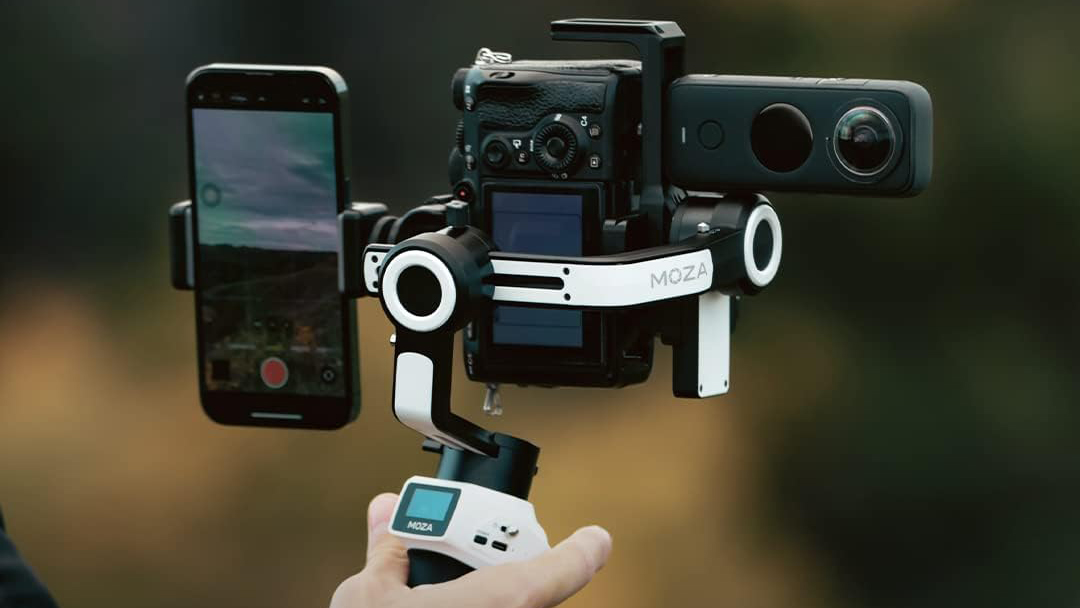Affiliate links on Android Authority may earn us a commission. Learn more.
The best gimbals for iPhone or Android in 2025
Published onJanuary 27, 2025



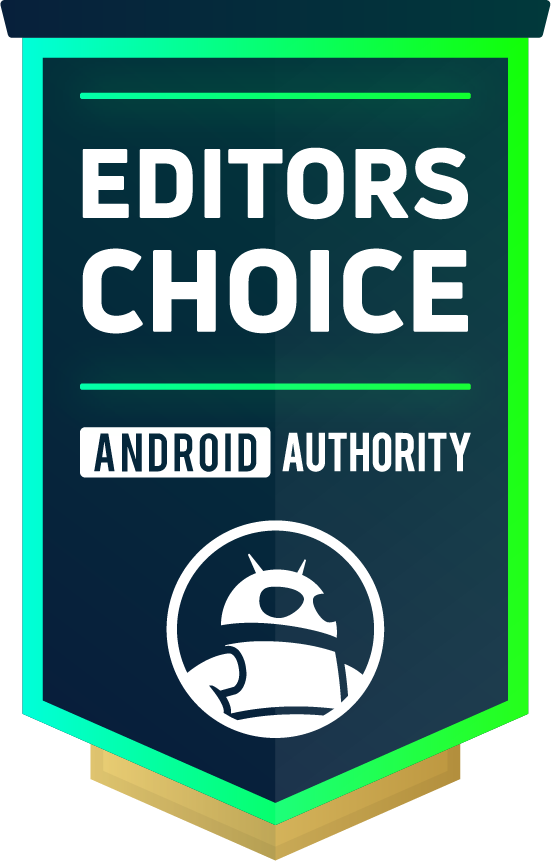





Smartphones have become very good at stabilizing video, but they can’t beat the efficiency and control of a mobile gimbal. Holding your camera phone directly while recording can lead to unexpected movements, jumps, and trips. Add shaky hands to the equation, and any smartphone will need some help keeping footage steady.
Those looking for the best phone gimbal will soon realize many options are available. Finding the right smartphone gimbal can be daunting, so we have curated a list of the best handset stabilizers available.
The best smartphone gimbals, at a glance
Below, you’ll find a quick breakdown of our top smartphone gimbals picks, followed by a deeper dive into each alternative further down in the article.
- ZHIYUN Smooth 5S: A a pretty pricey mobile gimbal at $169, but you will be hard-pressed to find anything better than this one.
- Insta360 Flow Pro: The Insta360 Flow Pro is the best gimbal if you want a very portable option. When folded, it can easily fit in a pants pocket!
- DJI Osmo Mobile 6: The Osmo Mobile 6 is our top pick for a folding gimbal. It’s lightweight, powerful, and an overall perfect companion for videographers on the go.
- DJI Osmo Mobile SE: Almost as good as the Osmo Mobile 6, but much cheaper.
- ZHIYUN Smooth Q4: This is a great gimbal for mobile videographers. It’s foldable, robust, and the removable LED light will keep clips well-lit at night.
- ZHIYUN Smooth X2: The Smooth X2 is not as capable as others, but it’s definitely one of the funnest gimbals and has a drop-dead price.
- Hohem iSteady MT2: Smartphone gimbals are great, but many of us have multiple cameras. This stabilizer can be used with a smartphone, as well as a GoPro or a Sony RX100.
- MOZA AirCross S: With a carrying capacity of 1.8kg, the MOZA AirCross S is an excellent pick if you prefer a larger phone. It can also hold regular cameras and action cams.
ZHIYUN Smooth 5S
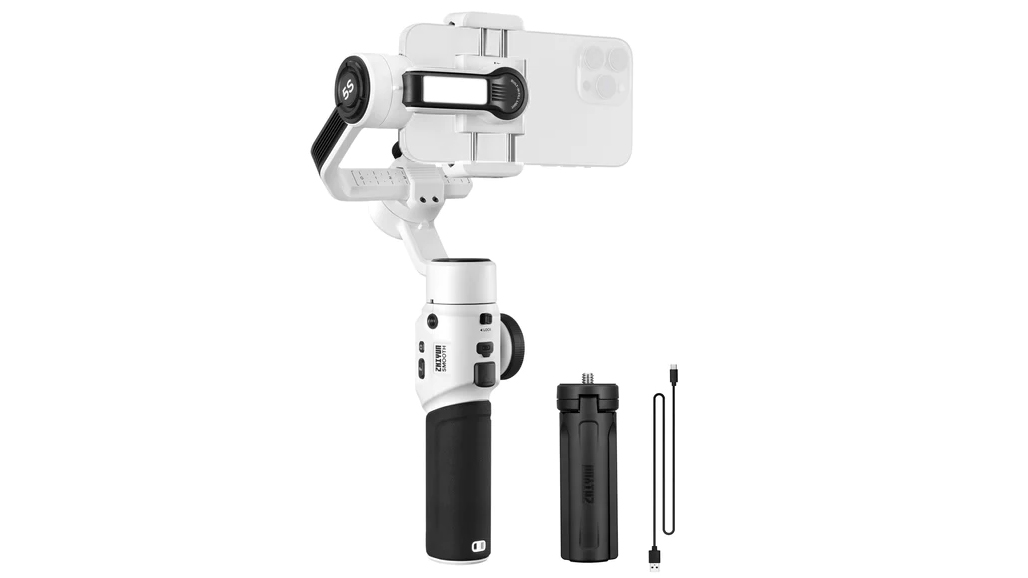
We loved the ZHIYUN Smooth 4, which held the #1 spot on this list for years, but is now very old and hard to find. It’s finally time to replace it with the latest and greatest from the same company. The ZHIYUN Smooth 5S is a pretty pricey mobile gimbal at $169, but you will be hard-pressed to find anything better than this one.
It all starts with the design, which looks very nice and clean, mainly consisting of white, with black accents. There’s also a gray version if you’re feeling less adventurous. Build quality is as good as you can expect from the Smooth line-up, following the tradition of the Smooth 5 ($149 at Amazon) and Smooth 4 ($328 at Amazon).
Other highlights include 3-axis stabilization, magnetic and built-in lights, portrait/horizontal shooting modes, a great set of controls (including a knob), and AI shooting templates through the app. The payload supports up to 300g, and the unit measures 311 x 168 x 52mm.

Pros
- Impressive selection of buttons and knobs
- Solid build quality
- Impressive stabilization and included tripod
- Built-in and magnetic fill lights
Cons
- Steep learning curve
- Not the best for large or heavy phones
Insta360 Flow Pro
In most cases, the best gimbals are the biggest and heaviest on the market. Thankfully, if the ability to travel easily is most important to you, there are options, and the Insta360 Flow Pro might be one of the best smartphone gimbals for your needs.
This small gimbal, when folded, is about the size of a large smartphone (although much thicker, obviously). It can easily fit in a pants pocket, which is an advantage Insta360 often shows off.
It has most of the features you’d expect of a larger gimbal, including a magnetic mounting system, a built-in extender rod, and even a trigger. It also adds something most gimbals on this list don’t have, which is a built-in tripod. You simply pull the three tripod feet out of the bottom, and it will prop anywhere. You don’t need to sacrifice your normal tripod, either, as the Flow also has a traditional tripod mount, too.
This model also includes some really nifty, modern features. For example, it supports tap-to-connect, 360-degree infinite pan tracking, and has a really cool tracking ring light.
That said, it is a high-tech, modern, smartphone gimbal, and its price is $149. Again, it is totally worth it, if you will take advantage of all the features.

Pros
- Small and light
- Built-in selfie stick and tripod
- AI tracking and 360-degree infinite tracking
Cons
- Software not as good as DJI’s
- Expensive
DJI Osmo Mobile 6
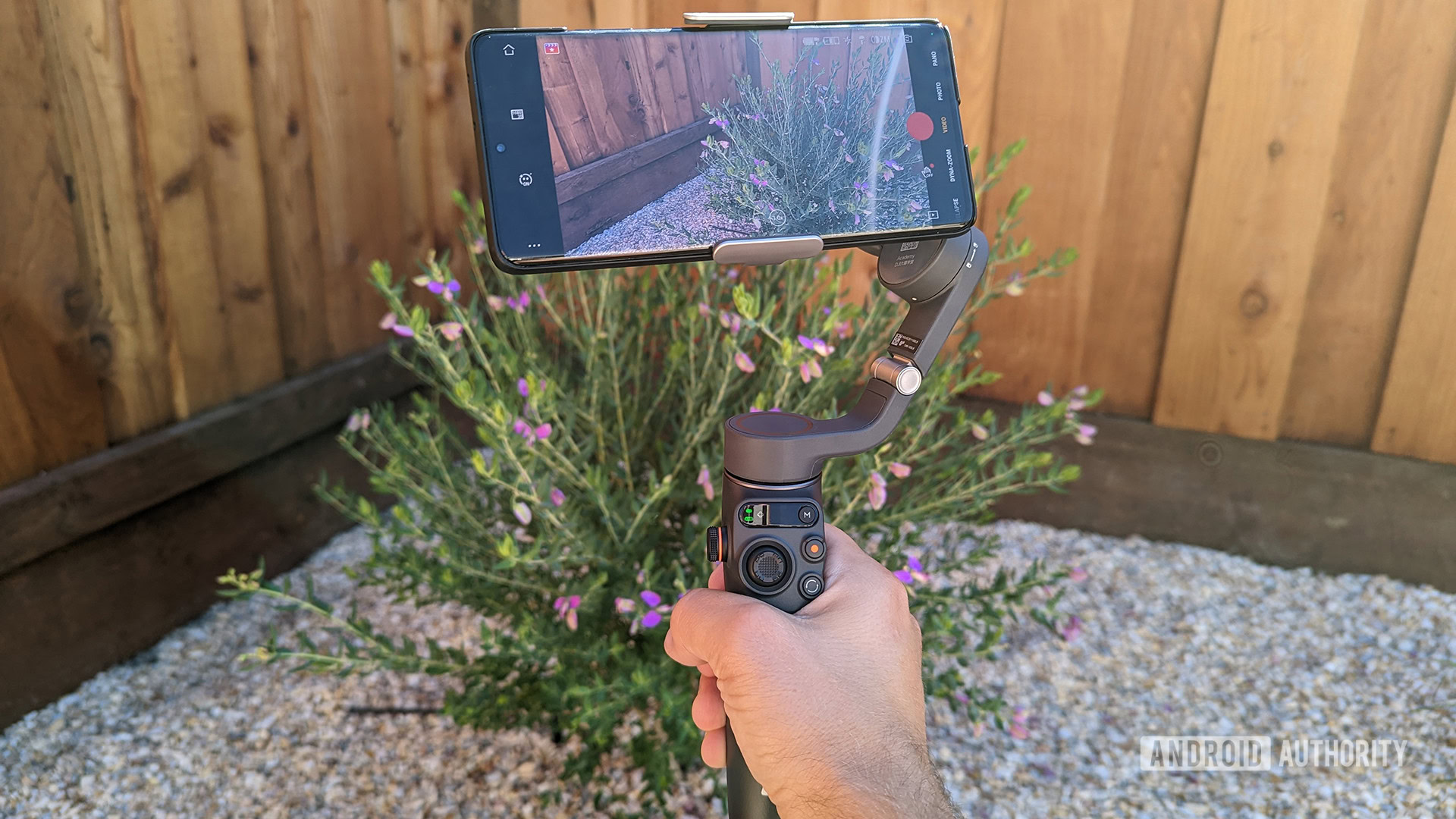
DJI’s Osmo Mobile 6 barely missed our top spot. It is a bit too pricey at $149 and doesn’t offer as much as ZHIYUN’s offering. The OM 6 features a folding design that earns top marks for portability and sets it apart from most other gimbals on the market. It’s super portable and has a built-in extension rod that turns it into a selfie stick.
The DJI Osmo Mobile 6 comes in at 309 grams right out of the box, and measures 276 x 111.5 x 99mm when completely unfolded. The gimbal packs a 1,000mAh battery, which isn’t great, but you still get about six hours and 24 minutes of battery life. The clamp can also handle its own, as it can hold devices as heavy as 290 grams, and as wide as 84mm.


Pros
- Much better folding arm
- Small and light
- Built-in extension rod
- Added display panel and sidewheel
Cons
- Slightly larger and heavier than the previous version
- Some features are iPhone-only
- Expensive
DJI Osmo Mobile SE
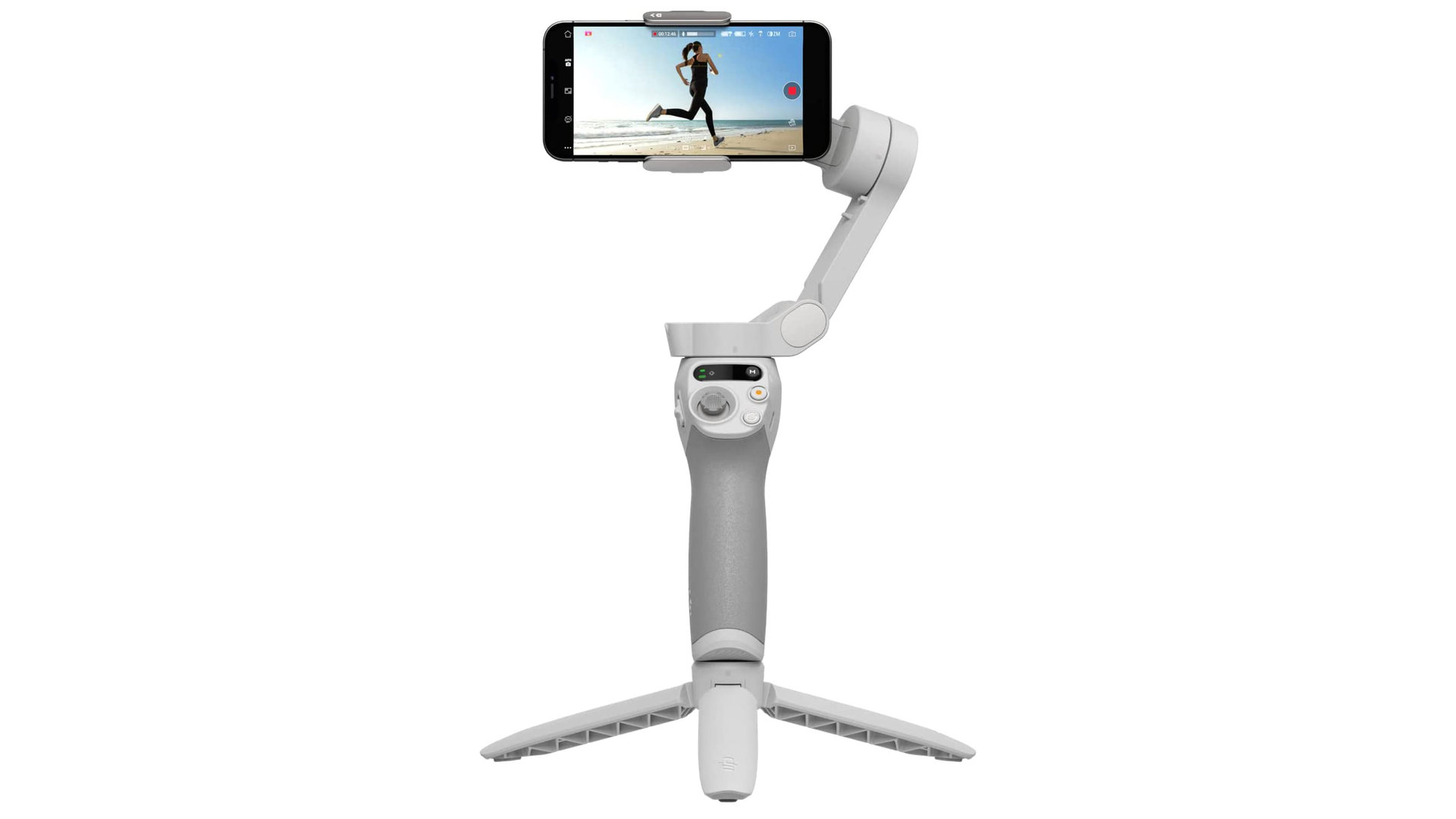
If you like the DJI Osmo Mobile 6, but deem it too pricey, then we’d like to show you something more affordable from the same brand. This one is $99.
The DJI Osmo Mobile SE comes with some of the best features you’ll find on its bigger brother, such as 3-axis stabilization, a portable and foldable body, a magnetic design, and even a very similar control interface. In fact, some people might see it as a bit of an upgrade, as it has a longer 8-hour battery life, as opposed to 6:26 hours of juice on the Osmo Mobile 6. It also happens to have improved mechanical range, especially on the pan and tilt.
Of course, some downsides come with a price cut. It is larger, even if by a bit. It’s also heavier at 352g. It lacks a selfie stick extender, and a rocker replaces the side wheel.
Pros
- More affordable
- Small and light
- Better mechanical range
- Added display panel
Cons
- Slightly larger and heavier
- Still a bit pricey
ZHIYUN Smooth Q4
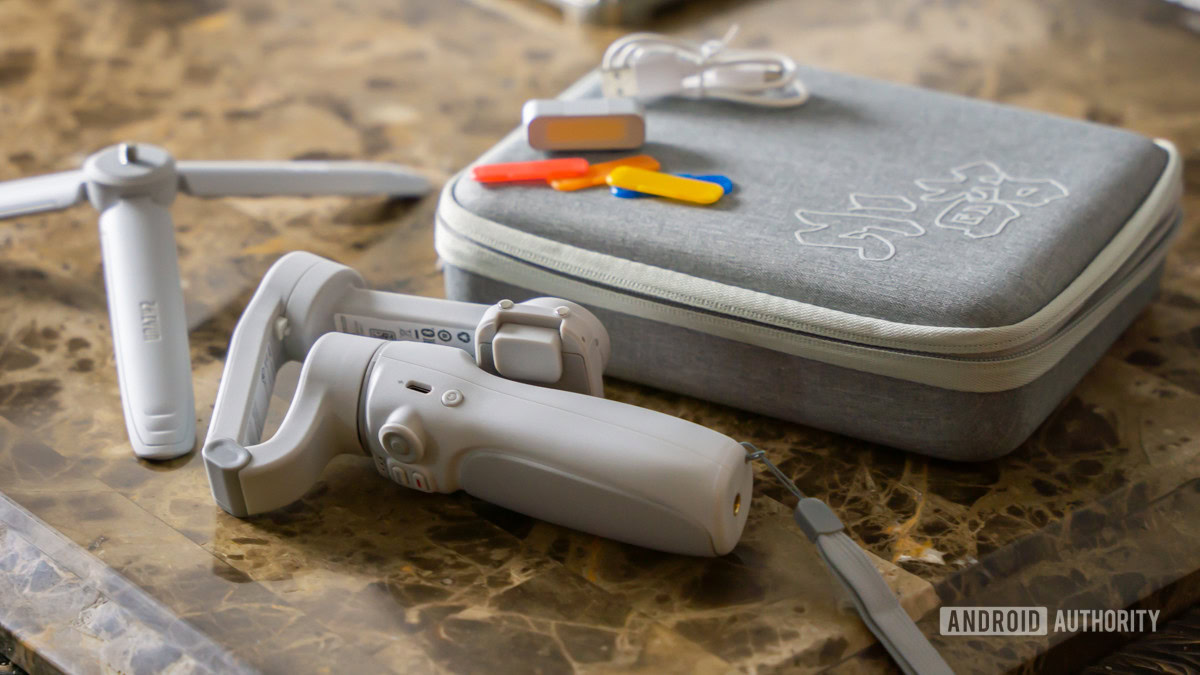
Although ZHIYUN’s Smooth Q4 doesn’t fold quite as small as the Insta360 Flow, it’s a very compact and portable gimbal that can also be folded down. It also costs less at $119.
Outstanding features include a removable, magnetic LED fill light, which is excellent for lowlight shooting. The light intensity can be customized by tapping on the top surface, and it can be used either pointing towards or against the shooter. The unit also features good stabilization, great controls, and an ergonomic handle. Another great improvement over the Smooth Q3 is that the Smooth Q4 can be extended to work as a selfie stick hybrid.
The body is still made of plastic. While it won’t feel as good as aluminum or other metals, it feels pretty solid in hand. Battery life is pretty good, too, at 15 hours on a single full charge. Of course, you’ll still enjoy all the great features you can expect from ZHIYUN’s ZY Cami app. These include Dolly Zoom, SmartFollow, Gesture Control, MagicClone Pano, and more.
Pros
- Super light and compact
- Removable LED fill light
- Multiple advanced shooting modes
- Great controls and ergonomic handle
Cons
- Plasticky build
- The ZY Cami app is unreliable
- You could do better for the price
ZHIYUN Smooth X2
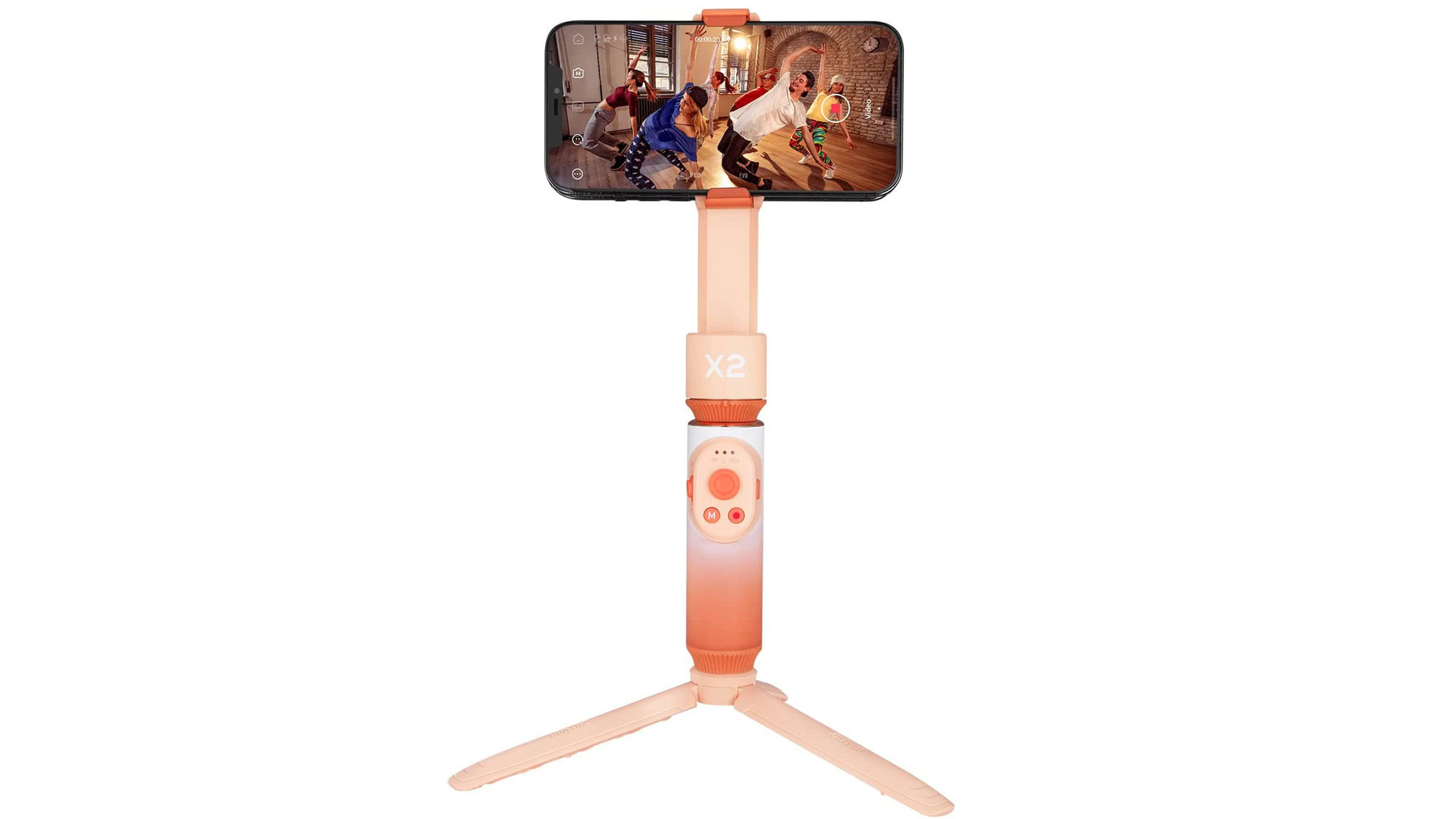
If you’re looking for the most affordable gimbals around, ZHIYUN’s Smooth X2 might be right up your alley. It had a $119 price at launch, but you can often find it for as low as $40.
The portable gimbal has plenty of fun to offer. For starters, it comes with plenty of lighting effects, which activate with interaction. Additionally, you can use a removable LED fill light, which you can customize with different color filters.
The unit can be extended by up to 265mm, essentially making it a stabilized selfie stick. You still get great ZY Cami app features, such as Smart Mode, SmartFollow, and online editing.
Pros
- Lightweight folding design
- Extending gimbal arm
- Magnetic LED fill light for dark shots
- Fun design and cool light effects
- You can now find it at very low prices
Cons
- Feels less premium
- Short 3.5-hour battery life
- No three-axis stabilizer
Hohem iSteady MT2
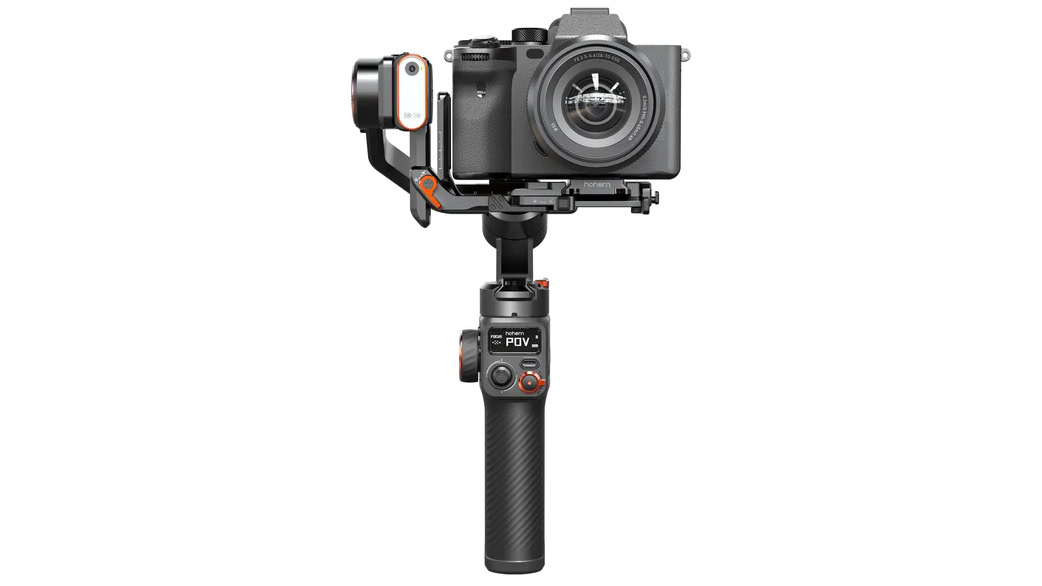
Smartphone gimbals are great, but it’s definitely better to have some versatility. The Hohem iSteady MT2 features more compatibility with smartphones and other cameras, including action cameras and dedicated cameras. Here’s a list of all the cameras the gimbal supports.
The unit is also very technologically advanced, offering AI features, a magnetic fill light, an excellent array of manual controls, and more.
The gimbal only weighs 653g, and it can carry as much as 2 lbs. It can pan 360 degrees, tilt 290 degrees, and roll 200 degrees. And if you care about battery life, this one can achieve up to 17 hours, which is quite impressive. However, this is reduced to 6-8 hours if you use AI and the fill light.
Just be ready to pay for all these features and versatility. The Hohem iSteady MT2 has a $349 price, making it one of the most expensive units on this list of the best gimbals for Android and iPhone.
Pros
- It can handle smartphones, action cameras, and regular cameras.
- Great weight limit
- Nice manual controls
Cons
- Underwhelming app
- Very expensive!
MOZA AirCross S
The MOZA AirCross S is a beast of a gimbal. It is built amazingly and looks very nice, but it stands out because it’s one gimbal to rule them all. You can use it with smartphones, traditional cameras, and more. Thanks to its 1.8 kg payload capacity, you can also use multiple shooting devices with it.
The MOZA AirCross S is not cheap at $259, but it comes with all the bells and whistles. You get 3-axis 360-degree stabilization, as well as an excellent ergonomic design and hand position. The 10-hour battery life is also very nice, considering the gimbal’s capacity.

Pros
- Can stabilize 1.8kg of equipment
- Can carry multiple shooting devices at a time
- Great 10-hour battery life
- 360-range in all directions
Cons
- Expensive
Buying the right phone gimbal for your needs
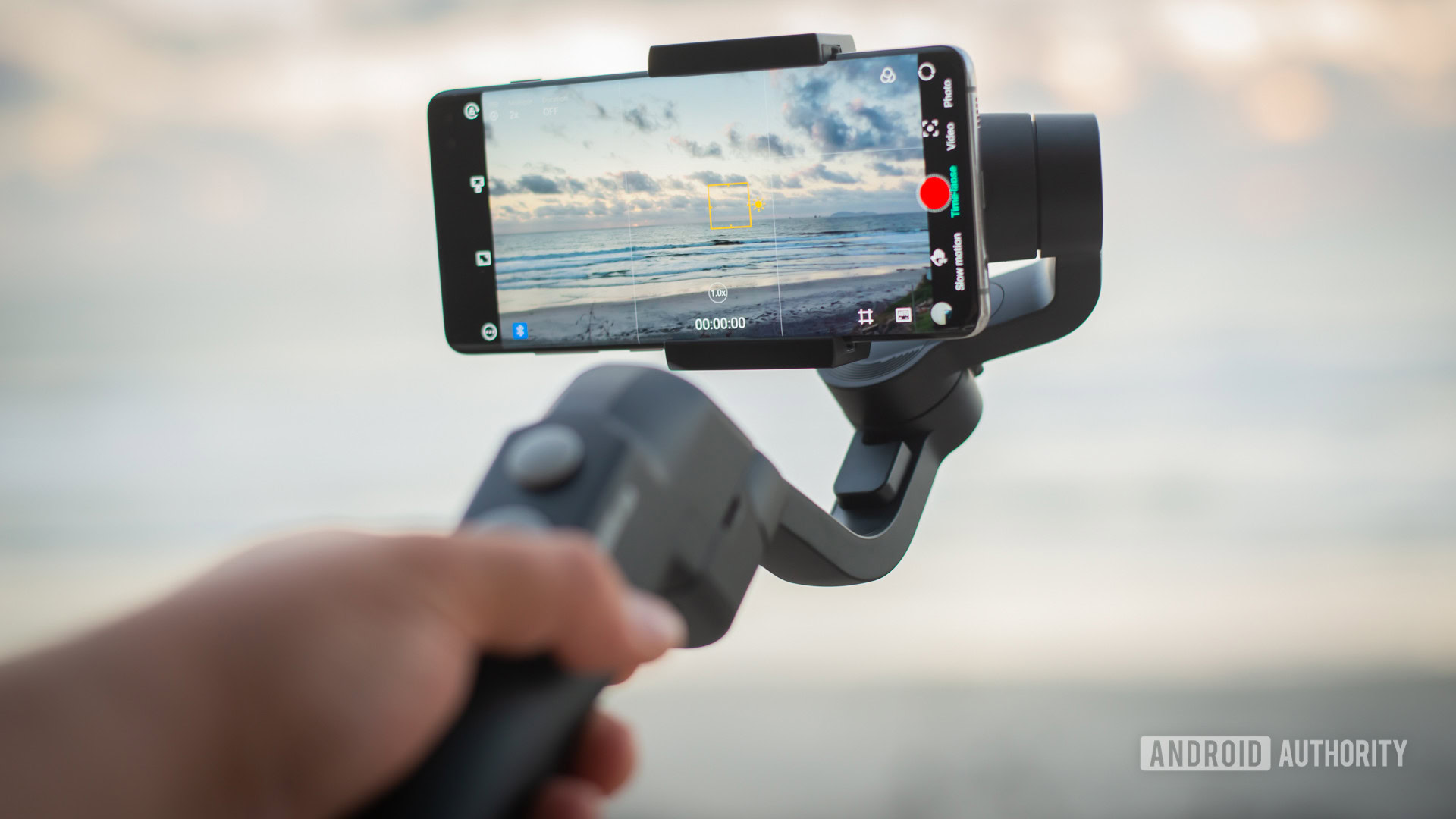
You need to consider several things when picking out a phone gimbal. The obvious factors to consider are price, size, weight, battery life, and build quality. Of course, mobile gimbals have other more complex features to keep in perspective. An essential one is the stabilization technology in use. Are you working with a 3-axis or a 2-axis stabilizer? 2-axis stabilizers smooth out tilt and roll, which means movements going up/down or from side to side. The third axis steadies panning. Of course, we recommend 3-axis stabilizers, but they can often be a bit bigger.
It’s also important to consider device compatibility. You will need to look elsewhere if the gimbal doesn’t fit or the hardware isn’t made for your handset. The motors need to handle your handset’s size and weight. The software will make a massive difference in your experience, too. Be sure to look at how many features the app has (if there is one).
FAQs
It depends on what you’re looking for. About $50 seems reasonable for an affordable gimbal that’s still good enough for most users. Prices can go upwards of about $200 for higher-end models. However, about $100 seems to be the sweet spot between price and quality.
As mentioned at the beginning of the article, 2-axis stabilizers smooth out tilt and roll, which means movements going up/down or from side to side. 3-axis stabilizers also steady panning. Which one you need depends on your type of video, but generally speaking, those using a gimbal for selfie shooting or still images won’t need panning stabilization as much. You’ll save some money on 2-axis gimbals, and they also tend to be lighter and smaller. Having 3-axis stabilization offers the best results for video production, though.
Smartphone gimbals make for great tripods. Not only can they hold a smartphone still, but they often have special features for tracking subjects. They will also stabilize your video if there are any vibrations or movements. The only downside is that these require battery power, while a tripod does not. This means that a gimbal can’t be used if you happen to deplete its battery.
You can often get away with using a smartphone gimbal without specific software, especially if all you want to do is smooth out your video. Some newer models even offer AI tracking that is independent from any software, and works in-device. That said, using a gimbal without a specialized app will usually mean missing out on most of the best features and optimizations. These include zooming, remote control, effects, object tracking, etc.
Also, keep in mind there may be some app limitations. Most smartphone gimbals have apps for both iOS and Android, but not all will. And some features might not work on certain platforms.
Given that the gimbal has an app for your smartphone, you should be able to use any phone as long as it fits on the clamp. Gimbal motors should also be strong enough to carry the weight of the smartphone, but double-check the payload capacity if you have an especially heavy smartphone. These details can always be found on the spec sheet.

